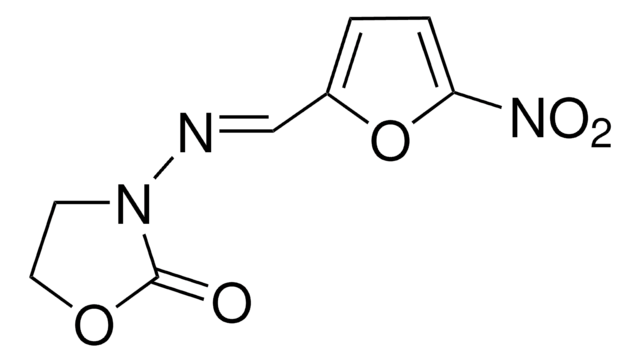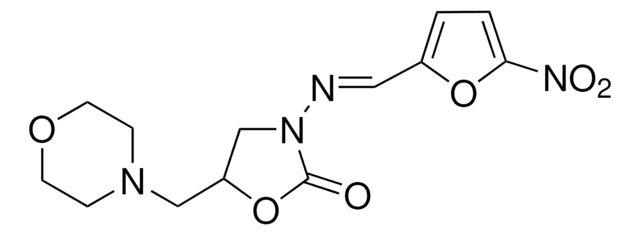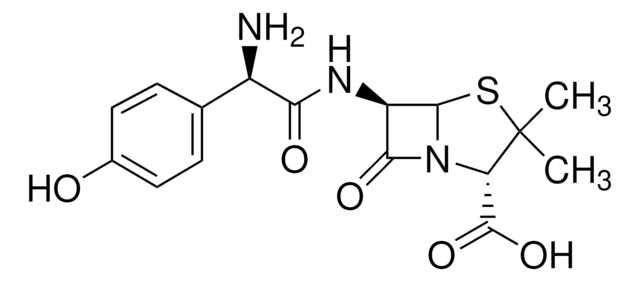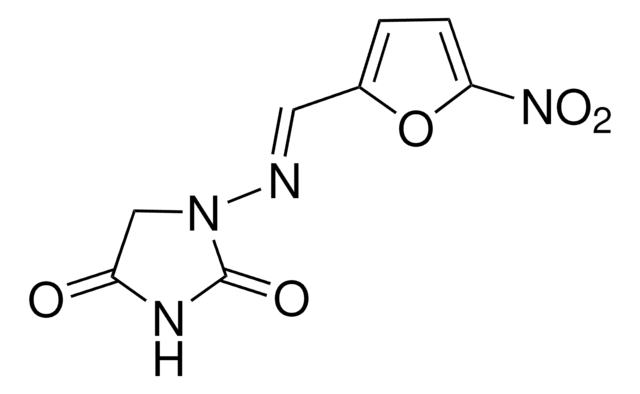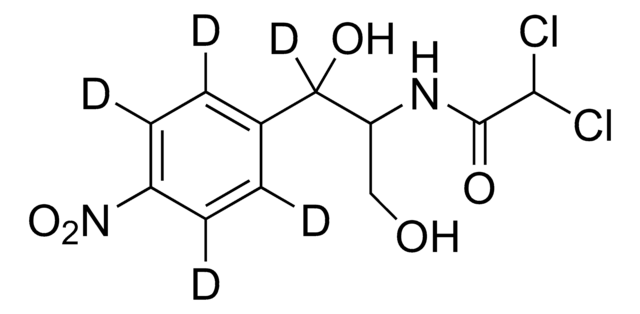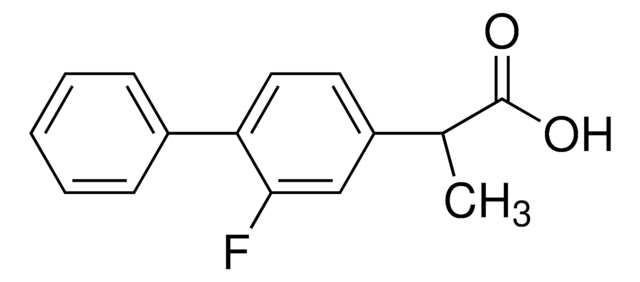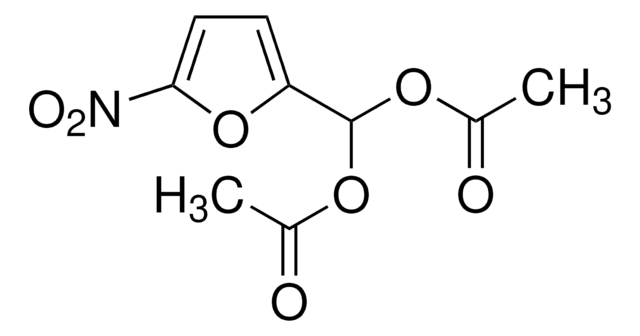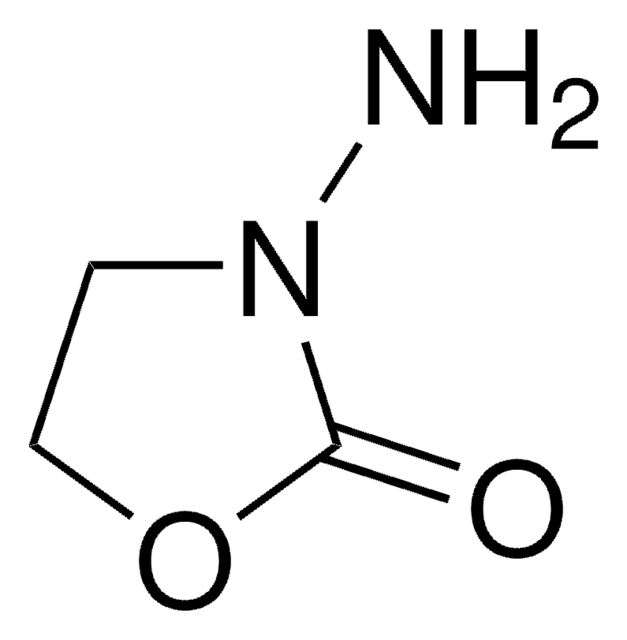F9505
Furazolidone
Synonym(s):
3-(5-Nitrofurfurylideneamino)-2-oxazolidinone
About This Item
Recommended Products
biological source
synthetic
Quality Level
form
powder
color
yellow
mp
256-256 °C
solubility
formic acid: 50 mg/mL
antibiotic activity spectrum
Gram-positive bacteria
parasites
Mode of action
enzyme | inhibits
SMILES string
[O-][N+](=O)c1ccc(\C=N\N2CCOC2=O)o1
InChI
1S/C8H7N3O5/c12-8-10(3-4-15-8)9-5-6-1-2-7(16-6)11(13)14/h1-2,5H,3-4H2/b9-5+
InChI key
PLHJDBGFXBMTGZ-WEVVVXLNSA-N
Looking for similar products? Visit Product Comparison Guide
Application
Biochem/physiol Actions
Signal Word
Warning
Hazard Statements
Precautionary Statements
Hazard Classifications
Repr. 2
Storage Class Code
11 - Combustible Solids
WGK
WGK 3
Personal Protective Equipment
Regulatory Listings
Regulatory Listings are mainly provided for chemical products. Only limited information can be provided here for non-chemical products. No entry means none of the components are listed. It is the user’s obligation to ensure the safe and legal use of the product.
JAN Code
F9505-VAR:
F9505-25G:
F9505-BULK:
F9505-10G:
F9505-100G:
Certificates of Analysis (COA)
Search for Certificates of Analysis (COA) by entering the products Lot/Batch Number. Lot and Batch Numbers can be found on a product’s label following the words ‘Lot’ or ‘Batch’.
Already Own This Product?
Find documentation for the products that you have recently purchased in the Document Library.
Customers Also Viewed
Our team of scientists has experience in all areas of research including Life Science, Material Science, Chemical Synthesis, Chromatography, Analytical and many others.
Contact Technical Service
